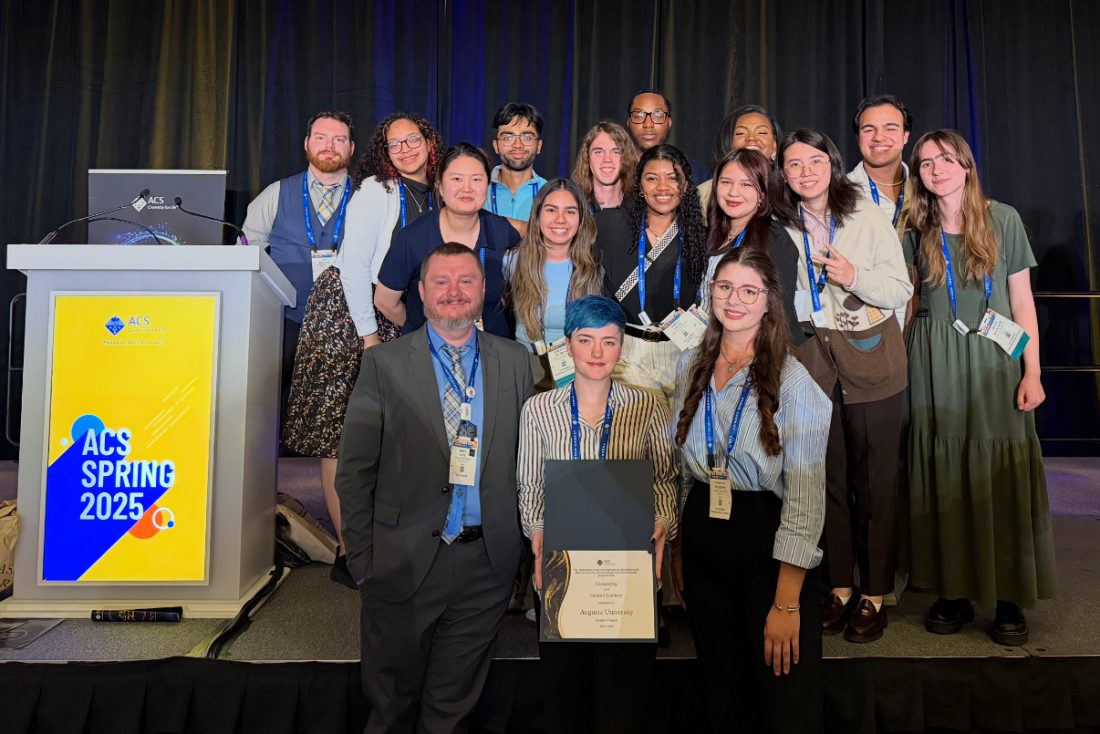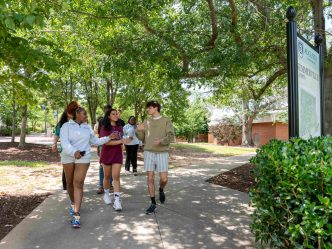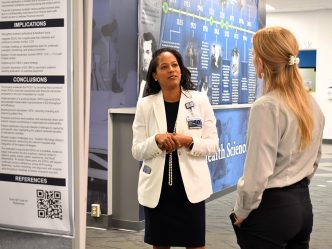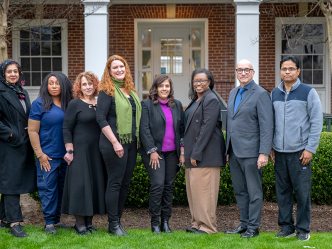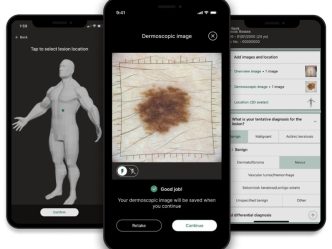The Augusta University student chapter of the American Chemical Society, part of the College of Science and Mathematics, was awarded an Outstanding Chapter Award for a fifth consecutive year, along with a Green Chemistry Award for the sixth consecutive year.
AU’s ACS chapter is one of 84 winners of the Outstanding Chapter Award for the 2024-25 academic year among the 349 chapters that won awards. Of the 25 chapters to have won in the Green Chemistry category, AU’s is one of only 14 to have won awards for both Outstanding Chapter and Green Chemistry. The awards put the AU chapter in the top 25% of the decorated chapters for the Outstanding Chapter Award and within the top 5% for the Green Chemistry Award.
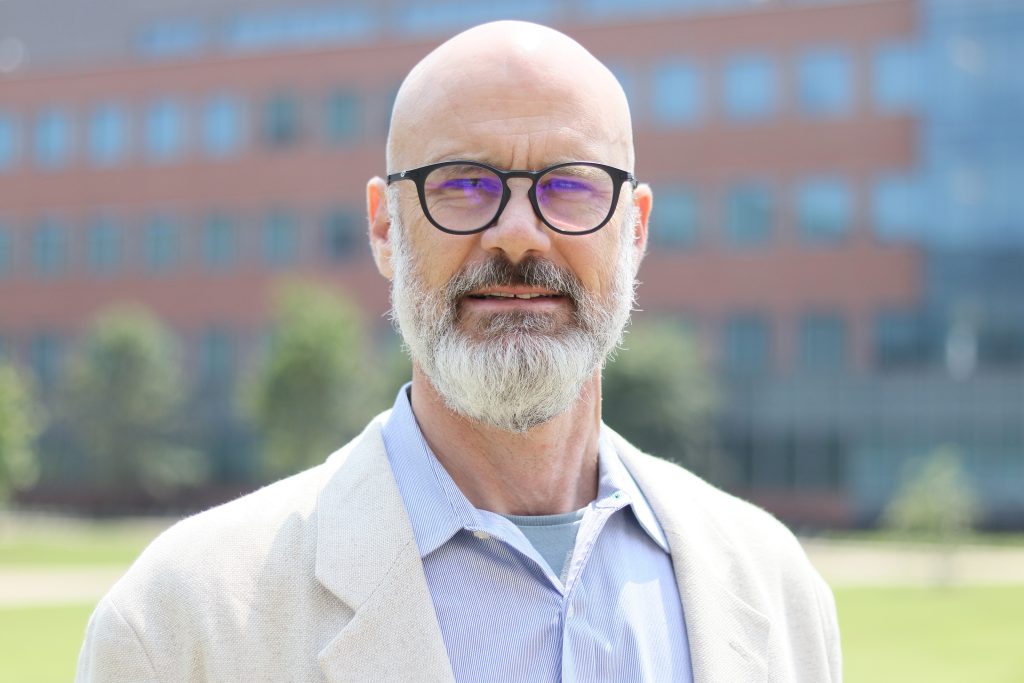
“It’s an incredible honor, especially for the historical undergraduate program,” said Guido Verbeck, PhD, chair of the Department of Chemistry and Biochemistry in the College of Science and Mathematics. “This is a student-centered and student-led program with an incredible outreach arm to the campus and the sciences at AU and the CSRA.”
The success of ACS is a point of pride for Brian Agee, PhD, faculty adviser and assistant professor in the Department of Chemistry and Biochemistry, particularly as a green chemist. The chapter’s surge of awards in recent years is even more impressive since ACS was non-functional at AU before Agee arrived in 2016. He began leading it in 2017.
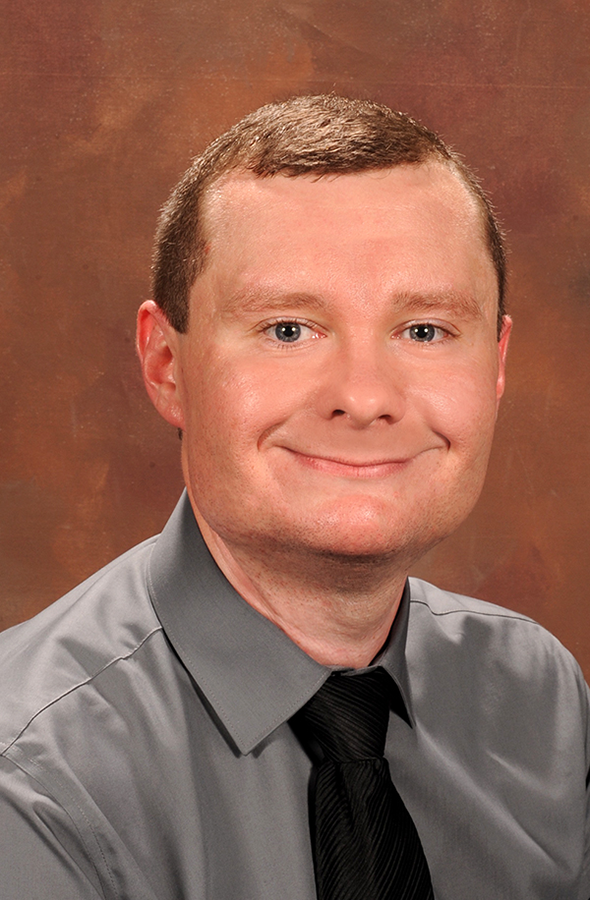
“When I took over, we were deemed an inactive student chapter,” Agee said. “To qualify, you need at least six members, which we didn’t have.”
Within the first year of reviving the chapter, Agee and his students won a Commendable Award, one tier shy of Outstanding. By the end of the following year, over 30 students had joined, were paying ACS dues and were participating in events to make the chapter eligible for awards.
“We went from obscurity to Commendable,” Agee said. “If we kept that up, we were going to get Outstanding.”
As of 2025, the ACS chapter has more than 70 active students. The chapter organizes more than 100 events a year, making it one of the most active chapters in the country. During Earth Week alone, the chapter manages more than 30 events, many of them focusing on green chemistry.
Agee and a group of about 15 to 20 students also regularly attend the annual National ACS Conference, where students have a chance to present their research to peers, faculty and industry professionals from across the nation.
Jordan Singh, a fourth-year undergraduate chemistry student, attended the 2025 conference in San Diego, California. She presented her research on extracting furanone – the chemical that gives coffee its aroma – from spent coffee grounds and using it to create 2-methyltetrahydrofuran, a greener, biomass-derived solvent.
“The goal is to make a solvent that is more environmentally friendly,” said Singh. “We are trying to replace things like dimethyl chlorine, which is bad for the environment.”
Singh’s involvement with ACS began in 2024 after taking Agee’s organic chemistry course, and she has been a part of the chapter since. Her interest in green chemistry came from Agee’s encouragement to participate in more research, which lends well to the ACS green chemistry emphasis of the AU chapter.
“It’s exciting being part of such an integrated group that wins so many awards,” Singh said.
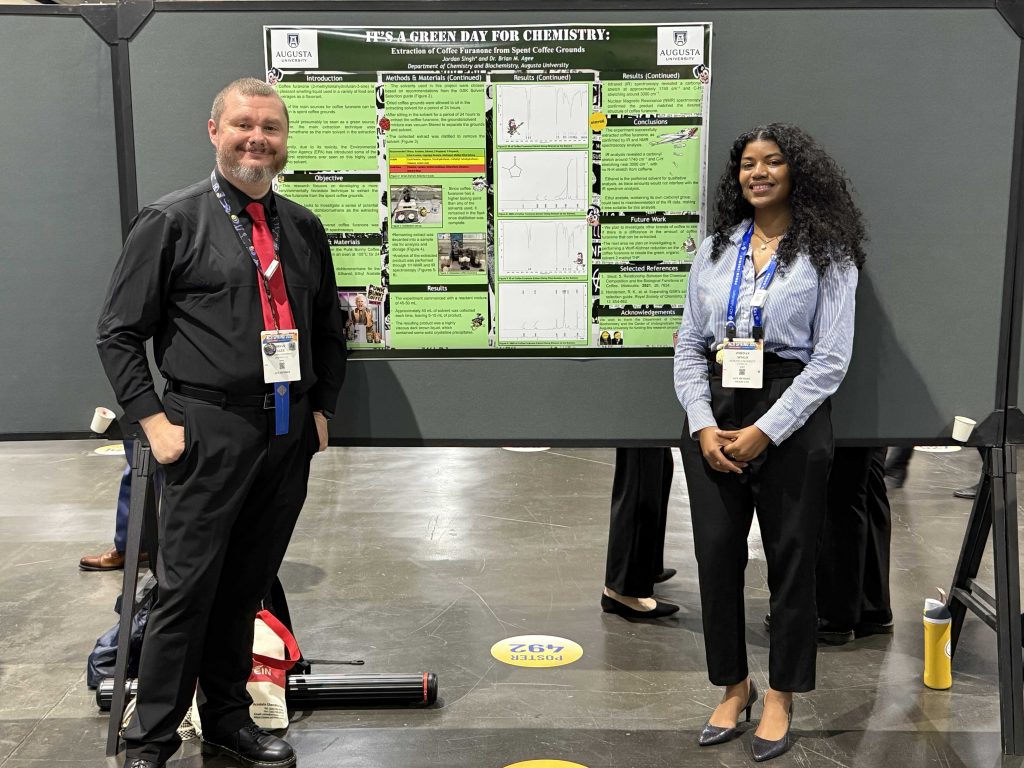
Agee plans to make green chemistry a greater focus of his department moving forward. In February 2025, he was part of the effort leading to AU signing the Green Chemistry Commitment with Beyond Benign, a nonprofit sustainable chemistry organization that seeks to expand green chemistry initiatives in higher education.
“We are now one of two institutions in the state to have signed the Green Chemistry Commitment,” Agee said. “It means we are introducing green chemistry to our undergraduate students on a whole other level. It’s in the classrooms now.”
A 1000-level green chemistry course is now being offered in Fall 2025, and Agee hopes that more courses like it become a part of the chemistry curriculum in the future.
“This is a rare and unique opportunity because this will set us apart,” Agee said. “Not many institutions have green chemistry or really talk about it at all. It’s an emerging field that needs to be out there.”
Even at the ACS’s national conferences, green chemistry is becoming a bigger focus. Agee recalls that when he was a PhD student, the green chemistry conferences were considered niche. In the last 10 years, they have become a mainstay for the ACS. The green chemistry message has caught on with his students, too.
“A lot of the chemicals we used in the 1950s have been heavily regulated, and we won’t be able to use them normally in labs,” Singh said. “Green chemistry is the answer to ‘What do we use when certain chemicals get regulated?’ It’s the future of chemistry, in a way.”
 Augusta University
Augusta University
